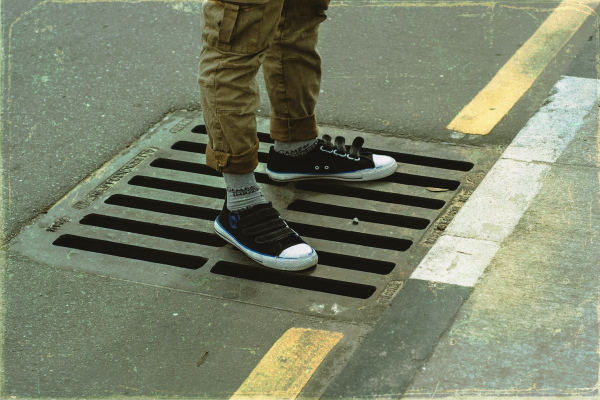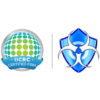
Experiencing a sewage backup or a property being flooded by sewage water? Most people don’t realise what the several hazards associated with sewage are and what is involved in a sewage cleanup. When affected by floods or sewage water, it is best to get help from a reputed specialised cleaning company. They have the appropriate PPE (Personal Protective Equipment), tools, and knowledge to deal with hazardous sewage water. Once the expert sewage cleanup technicians arrive on site, they will immediately assess the situation and determine the best course of action. This is because no two properties or sewage incidents are the same.
Here are a few FAQ’s that one should know about Sewage Cleanup.
What is considered as sewage?
Any waste water that’s created in your home or business can count as sewage. Waste water can be one of these forms –
- Black water – raw sewage. This form of water has come into contact with faecal matter. Black water should be avoided at all costs,
- Grey water – water from sinks and kitchen appliances. This form of water is made up of food waste, oil, and soap. Grey water is generally not a high risk to the health of people, pets or plants as it is usually non-toxic and disease-free.
- White water – water that enters into your home or business. Clean white water also comes directly out of taps, showers, dishwashers and toilets. White water is perfectly safe to drink or use and is not harmful. However, if there are leaks or floods, white water can give rise to other problems like dampness, mould growth and water damage.
How do sewage leaks or sewage backups occur?
There are a number of reasons for sewage leaks or sewage backups in a home or property. Sudden rainstorms and overflowing rivers are some of the main causes of sewer flooding. Excessive amount of water leads to sewage systems becoming overwhelmed. When this excess water gets backed up into residential and commercial properties, it causes a sewage overflow.
Sewage backups can occur when people flush things down the toilet that they should not have. Damaged drainage infrastructure can also cause sewage backups.
Can one fall sick from sewage backup?
Sewage of any form, especially raw sewage, carries with it many dangers. To minimise exposure and contain the spread, it is essential that any sewage spills are dealt with quickly and effectively.
Raw sewage can contain a variety of fungi and parasites. It is full of harmful viruses, bacteria and pathogens that cause diseases. If the harmful air-borne contaminants that are emitted by sewage backup are inhaled, it could lead to gastroenteritis. Unknown chemicals such as pesticides, carcinogens and solvents can be present in sewage leaks and sewage overflows. The risk of contamination from such unknown chemicals is incredibly high.
Coming in contact with sewage poses a very real risk to health. Nausea, vomiting, cramps and diarrhoea are some of the most common symptoms that people suffer due to sewage exposure. In severe untreated cases can even result in death.
If the sewage mishap is within a confined space, there is a potential danger of flammable, toxic and asphyxiating gases. This can be hazardous to your home, family, or business. Dangerous gases from sewage can also have disastrous consequences to the local water supply and environment.
Sewage leaks and spills from damaged and overflowing sewage pipes can spread rapidly. Exposure to sewage for a long time can also cause long term effects on the health of the occupants.
Can sewage cleanup be done by the inexperienced?
Sewage cleanups can be extremely hazardous. It can be potentially very harmful to health, even fatal, if the inexperienced attempt it by themselves. Sewage cleanups require a certain level of knowledge and expertise to handle such situations and biohazardous waste safely and efficiently.
When sewage leaks or sewage backups happen you should look to hire professional sewage cleanup services. Look for reputed and experienced professionals who offer an extensive and comprehensive sewage cleanup service. Specialised biohazard cleaning firms understand the risks and dangers associated with sewage spills. Experienced and well-equipped technicians can ensure all the potentially hazardous untimely sewage spills are contained and safely removed. They can also accomplish the cleanup in a quick and cost-effective manner, using processes and material which are considerate to the environment.
What does a sewage cleanup involve?
All sewage overflow, sewage leaks, or sewage backup-related incidents should be considered as emergencies and dealt with as a matter of urgency.
A sewage cleanup requires a structured approach to be taken to clearing and cleaning such biohazards. Decontaminating, and disinfecting the affected areas is also vital. Unpleasant odours and harmful micro-organisms have to be eradicated from the air and all surfaces that the sewage water has come into contact with. Professionals dealing in sewage cleanup can guarantee the pollutants and contaminants have been completely removed.
It is also necessary to wear full personal protective equipment (PPE) to minimise the risk of health dangers to persons on site.
Call Bio Hazard Services Pty Ltd for sewage cleanup and decontamination.
Bio Hazard Services Pty Ltd has emergency sewage cleaning teams to ensure the affected area is cleared of any possible risks and completely disinfected. We aim to sanitise sewage spills with 100% cleaning, decontamination and disinfection.
Our emergency specialised services, such as Covid-19 Cleaning, Biohazard Cleaning, Decontamination and Disinfection, Meth Cleaning and Restoration Services are used by a homeowners and a range of businesses and authorities throughout Sydney, Blue Mountains and Regional NSW. Our service areas also include Bathurst, Lithgow, Orange, Wellington, Penrith, Blacktown, Windsor, Campbelltown and Parramatta. We are available 24/7 for a comprehensive and immediate response. Need emergency specialised cleaning and disinfection to help restore your home or business? Contact one of our cleaning specialists here, on email or call us on 0490439319.
